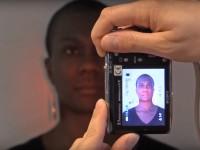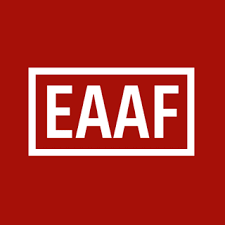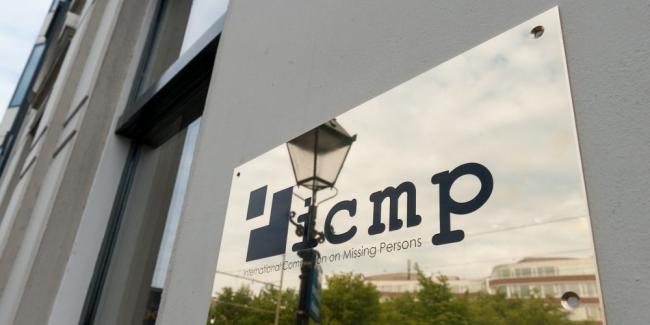The Family Links Network
Coordinated by the Central Tracing Agency, the International Red Cross and Red Crescent Movement’s worldwide Family Links Network comprises the CTA, the tracing units in ICRC delegations, and the National Societies’ tracing services.
The Movement’s Restoring Family Links (RFL) works to make sure that families stay together. It helps to protect family links by putting family members back in contact with each other or by reuniting them with their relatives.

Trace the Face
Trace the Face is a Red Cross and Red Crescent website which helps migrants and their families reconnect. Created in 2013 by several European National Red Cross Societies and the International Committee of the Red Cross (ICRC), Trace the Face is a website, where people looking for their missing relatives publish their own photo. Hopefully, they will be recognized by their missing relatives or by someone who has information about them. Pictures of children under 15 are not made public, to protect them from potential harm. They can only be seen in presence of National Red Cross or Red Crescent Society or ICRC staff.
RedSafe: Digital Humanitarian Platform
RedSafe is a digital humanitarian platform providing safe and secure services for people affected by conflict, migration, and other humanitarian crisis.
The free website and app are provided by the ICRC for people use to obtain humanitarian services.
A providing safe and secure services, RedSafe will allow the ICRC to reach out to more people while guaranteeing digital safety and compliance with our data protection standards.
Red Safe is managed by the ICRC and enables access to services delivered by the ICRC, and its humanitarian partners, including the National Red Cross and Red Crescent Societies.
To assist in possible future searches, RedSafe also offers a secure digital vault for people at risk of becoming missing to upload and safely store digital copies of their most important documents including passports, birth certificates, and medical records.

Argentine Forensic Anthropology Team (Equipo Argentino de Antropología Forense, (EAAF)
The Argentine Forensic Anthropology Team (Equipo Argentino de Antropología Forense, (EAAF) is a non-governmental organization that applies forensic sciences to the investigation of human rights violations and humanitarian problems worldwide.
The EAAF’s Border Project supports families across Central America and Mexico with missing migrant relatives who lost their lives while transiting through Mexico or on the US-Mexico border. The project has established forensic databanks in countries or communities of origin of missing migrants to facilitate the search and identification of missing migrants.
Individual Complaints to the UN Committee on Enforced Disappearance
In accordance with article 31 of the International Convention for the Protection of all Persons against Enforced Disappearance (ICPPED), any individual claiming to be victim of a violation of rights protected under the Convention can submit a complaint (also called a ‘communication ’).
The individual communication procedure only applies to States parties that have made a declaration to accept the competence of the Committee to examine individual complaints under article 31. This declaration can be made by the State when becoming a party to the ICPPED, or at any time afterwards.
Communications may be submitted by the victim of an alleged violation, or by another person with the written consent of the victim (no specific form is required). If the communication is submitted on behalf of a disappeared person, consent from that person is obviously not required. The authors of the communication must however explain why they consider that they have a legitimate interest to make the submission.

ICMP Online Inquiry Center
The International Commission on Missing Persons (ICMP)’s Online Inquiry Center (OIC) is a tool to provide information or obtain information about a missing person. It is an online resource that can be accessed by families of the missing and others.
Developed on the basis of ICMP’s long-standing record of helping governments, families of the missing and others, the OIC is a place where concrete and usable information is collected and stored so that it can be utilized when it is needed in the search for missing persons.In the Inquiries section it is possible to submit a missing person report by providing details, for example, name , date of birth, place where the missing person was last seen.
The Missing Persons Digital Matching Project: Faster and Better Answers
One of the most significant obstacles encountered in the search for missing persons – whether in situations of violence, armed conflict, natural disasters or migration – is the lack of compatibility and exchange of information between different databases.
Through the Missing Persons Digital Matching project, we can now quickly and easily search for missing persons in the ICRC’s, National Red Cross and Red Crescent Societies’, and our partners’ databases (i.e. certain non-governmental organizations, international organizations and government databases). In line with established agreements, at the click of a button the search engine will flag a match for further investigation without accessing the whole of these databases.
The Integrated Online Tracing and Pre-Case project: Efficient workflows and data collection
When someone loses contact with a loved one, they can get in touch with the Restoring Family Links (RFL) department of a Red Cross or Red Crescent office wherever they are in the world to submit a tracing request.
This first enquiry can be made in many ways: by calling a helpline, sending an email, filling out an online form, or going in person to a Red Cross or Red Crescent office. National Societies typically spend a lot of time collecting and assessing data, organizing interviews, prioritizing, and evaluating all the RFL requests they receive through these various channels. This work is known as “pre-case management”.

